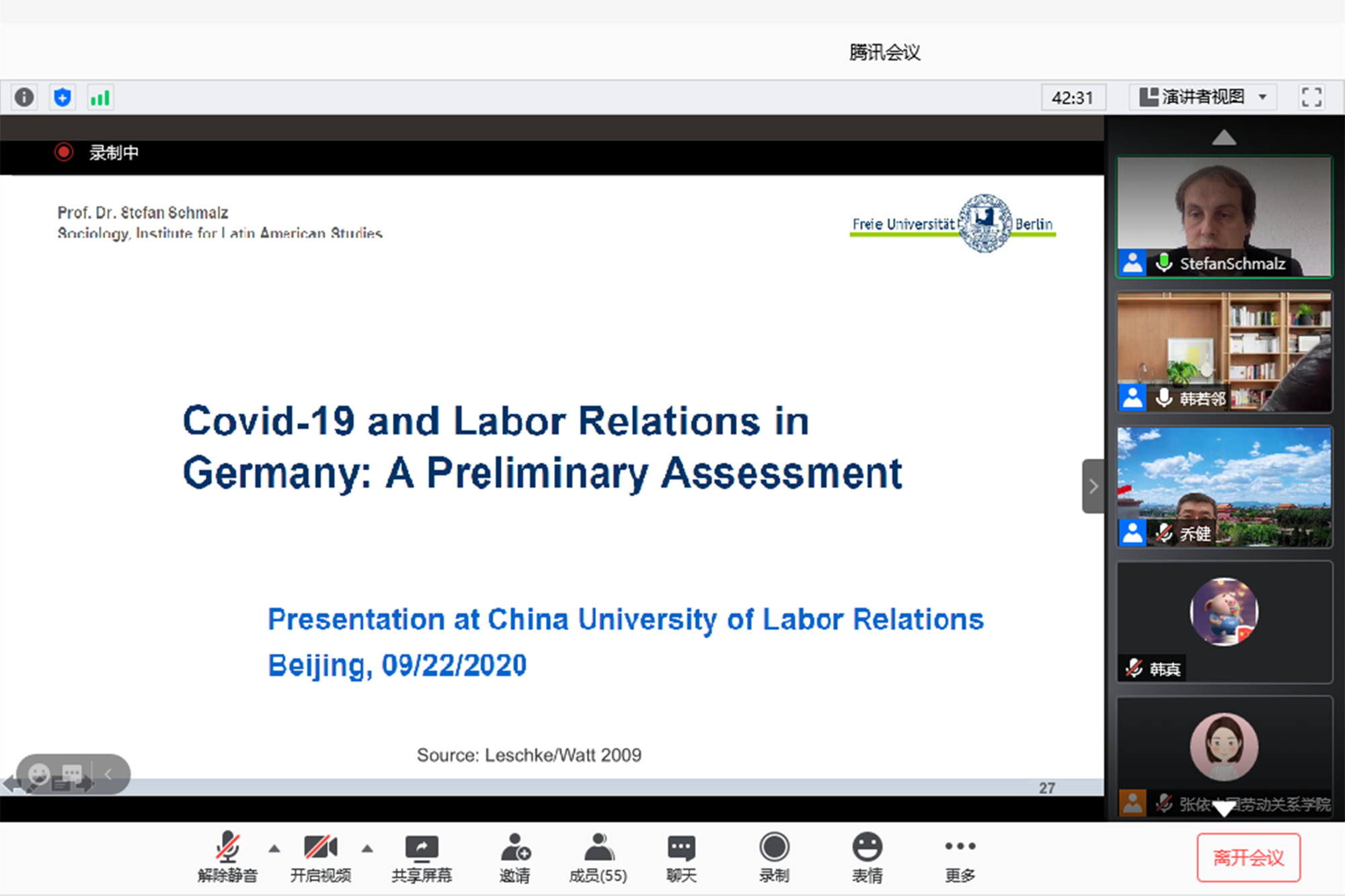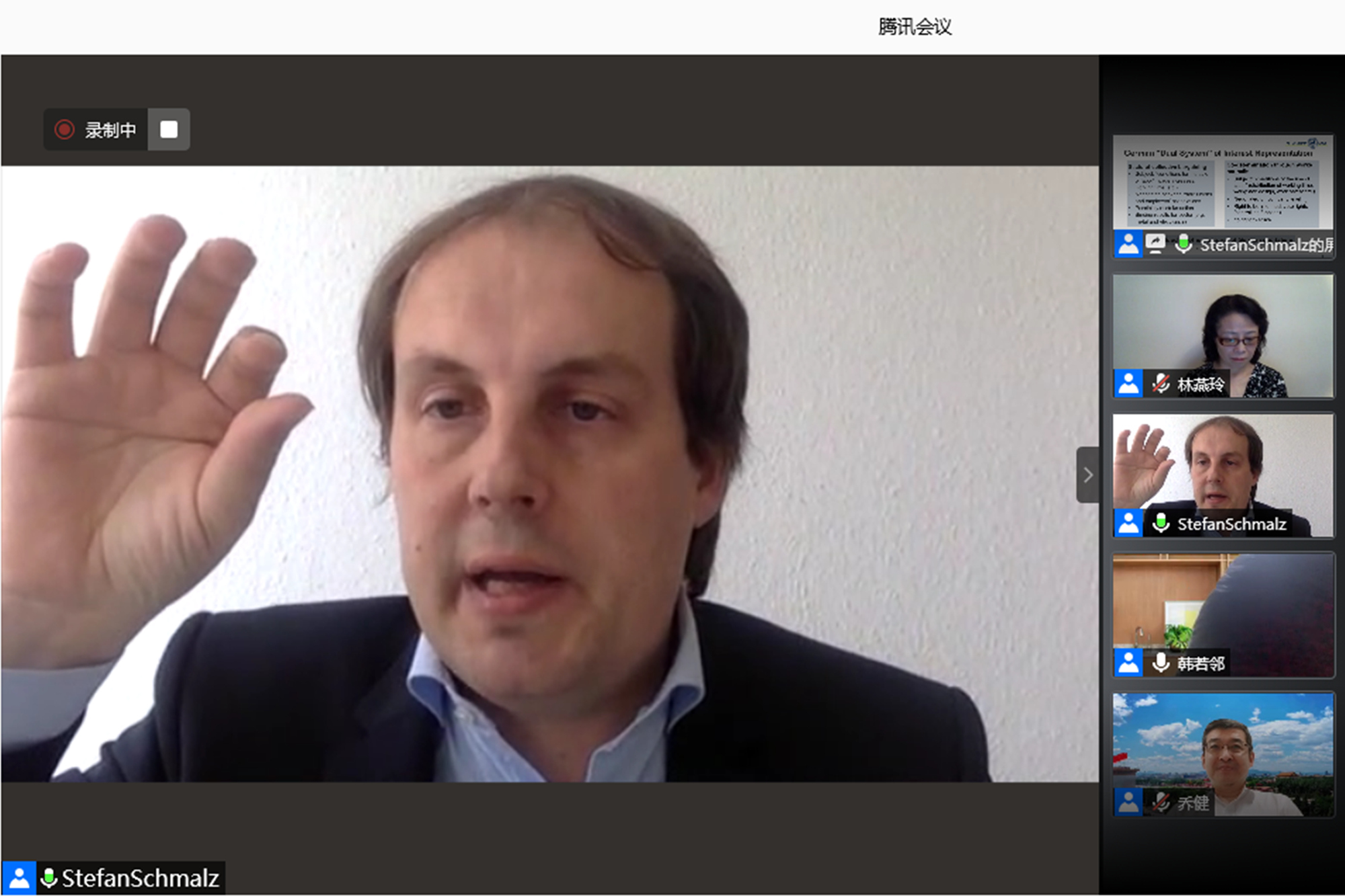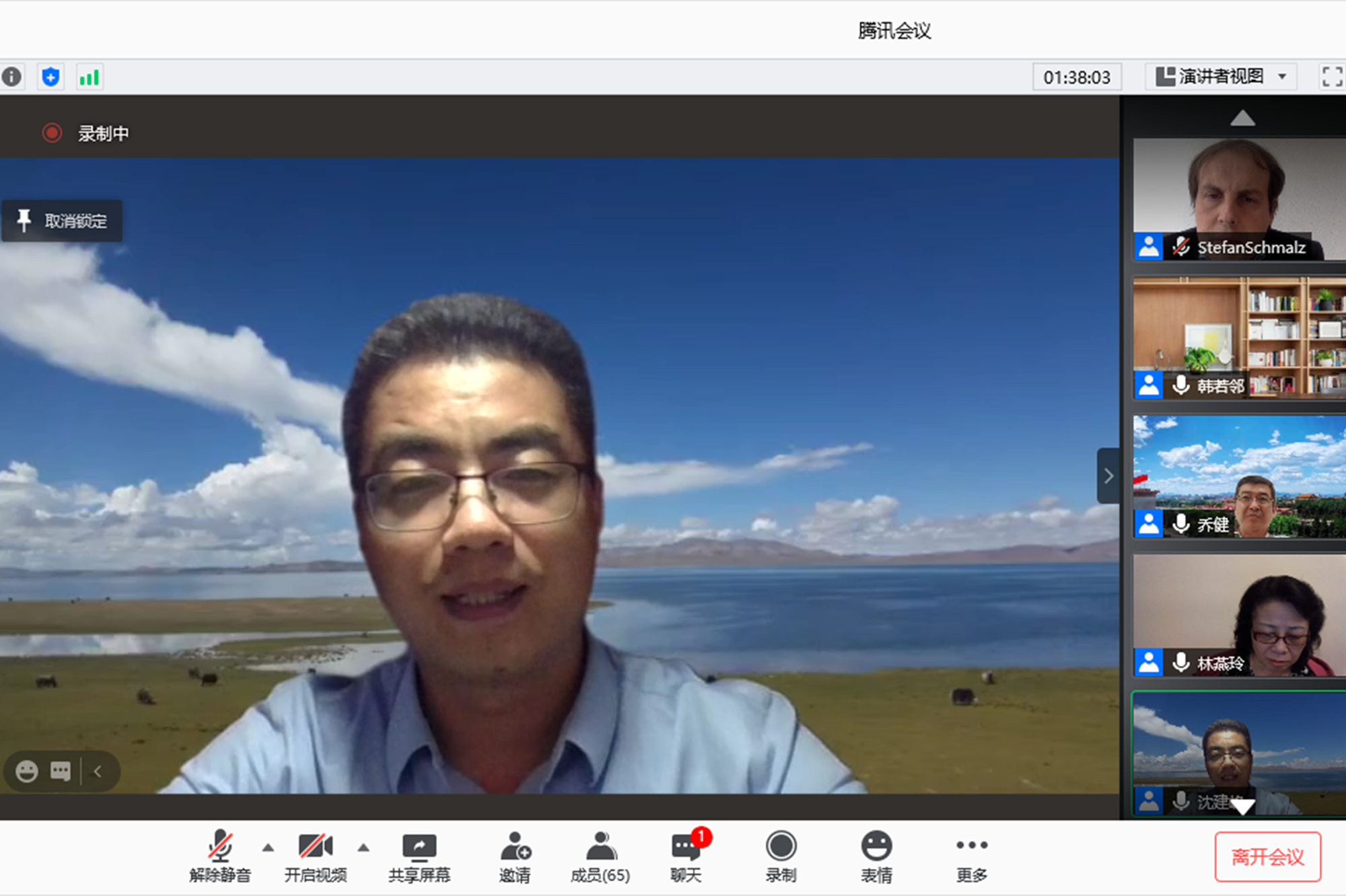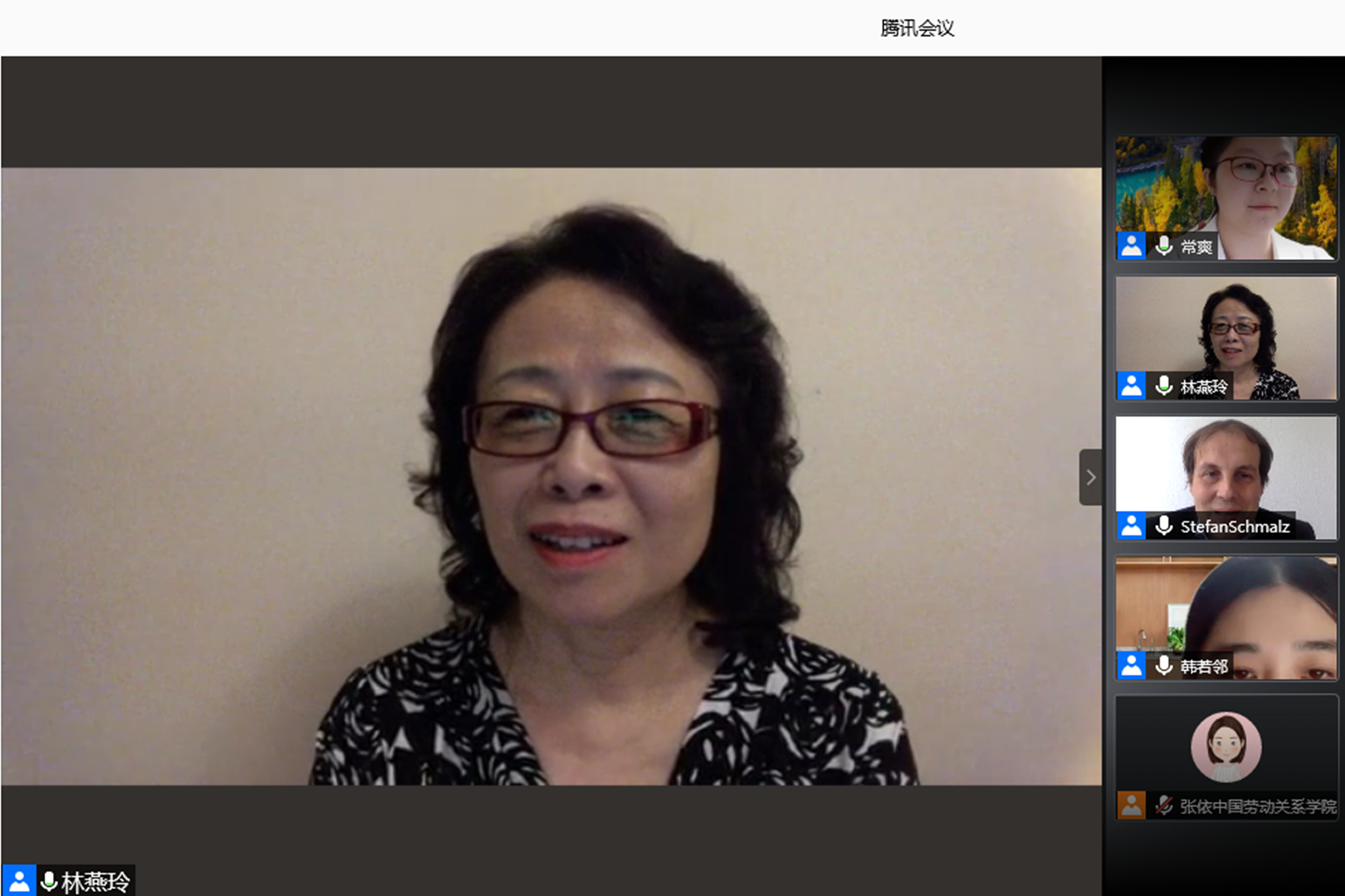On September 22th, the 8th lecture on “2020 Labor Relations under Global Work Resumption During the Pandemic” was held online by our university and co-organized by the Labor Relations Branch of Human Resources Development of China. Stefan Schmalz, professor of sociology at the Free University of Berlin, was invited to give an online lecture entitled “Covid-19 and Labor Relations in Germany: A Preliminary Assessment”.

Starting from Germany’s “dual-track” model of collective labor relations, Mr. Schmalz reviewed the development and changes of labor relations in Germany since its reunification based on globalization, labor market reforms and corporate employers. With rich and detailed data, he interpreted the two parties in labor relations and analyzed the status quo and influencing factors of the German labor market after the crisis. He fully agreed with the measures taken by the German government to resolve the crisis in labor market during Covid-19, and analyzed and summarized future uncertainties, potential social conflicts, and social inequality. According to him, Germany’s Covid-19 infections and death rates are lower than other European countries. The credit should go to the timely isolation policy implemented by the German Federal Government without restricting economic development, and its establishment of a social safety net and efficient healthcare system. However, he warned that although the large-scale adoption of the short-time work has stabilized the labor market, and there is no sign of mass layoffs by companies for the time being, the labor market is still “under pressure” from the pandemic.

During the discussion, Professor Shen Jianfeng, Dean of the School of Law of our university, commented on the collective bargaining system under the crisis in labor relations, the development of non-standard labor relations, and the handling of labor relations issues under the pandemic. He also put forward his ideas and interpretation on the following four aspects: the governance of labor relations in the context of a risk society, the rationality and legitimacy of public governance power under pandemic containment, the principle and mechanism of tripartite (labor, management and the government) response to crisis, and the need for more refined and targeted government policies under the pandemic.

In the Q&A session, Associate Professor Guo Peng and Associate Professor Li Xingguo of the School of Public Administration of our university carried out an in-depth discussion with Mr. Schmalz on a series of issues, including the application conditions and funding sources of the German short-time work system, whether there are other guarantees for employees not covered by collective agreements, the trade union density at nursing homes, and the role and challenges of trade unions in protecting the rights and interests of nursing workers.

In her concluding speech, Professor Lin Yanling from the School of Labor Relations and Human Resources expressed her gratitude to Professor Stefan Schmalz for his wonderful lecture. She indicated that this lecture on Covid-19 and German labor relations was based on both theories and reality, and therefore has significant implications for the study of labor relations under the pandemic. She hoped that in the future, both parties can make full use of the internet to further share resources, carry out in-depth exchanges and realize common development.

Professor Stefan Schmalz is currently a professor of sociology at the Institute for Latin American Studies at the Free University of Berlin, and a senior lecturer in the Department of Sociology at the University of Jena. His educational background includes the Philipps University of Marburg in Germany, Columbia State University, and the University of Jena in Germany. He once participated in research projects at the University of Jena and served as a professor of social work, economic sociology and industrial sociology, and also a visiting assistant professor in the Department of Sociology at Johns Hopkins University; he was once a researcher in the Interuniversity Research Centre on Globalization and Work of the University of Montreal, the Institute for Reform and Development of the Pearl River Delta of Sun Yat-sen University, and International and Intersocietal Relations at the University of Kassel. His researches mainly cover international social comparison, global labor, political sociology, global political economy, labor relations in China, South America, and the European Union, and political changes.
(Department of International Cooperation and Exchanges (Office of Hong Kong, Macao and Taiwan Affairs))
